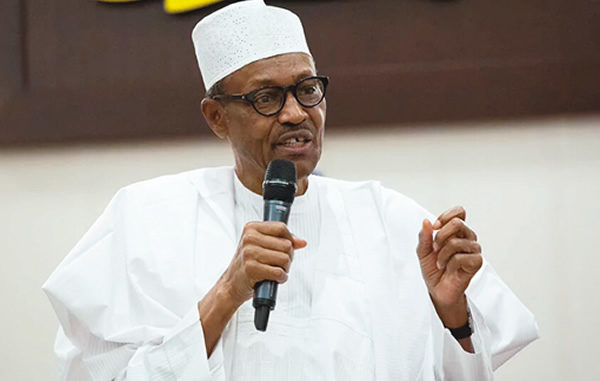
· 23,400 beneficiaries from 13 states receive N100,000 each
The Federal Government pressed on with its economic empowerment and poverty alleviation programme on Monday, by disbursing loans to 23,400 beneficiaries in 13 states.
Shockingly, none of the beneficiaries came from any of the five states in the South East geopolitical zone. This is not the first time the region is missing in the development and economic packages unveiled by the administration of President Muhammadu Buhari.
When the Federal Government unveiled a $29.96 billion foreign loan for the provision of infrastructure across the country, none of the projects to be executed with the loan was located in Igboland.
Similarly, when the government recently paid N5,000 monthly stipends to some poor Nigerians under its Social Intervention Scheme, all the states in the South East were excluded.
The current loans are being disbursed through the Federal Government’s Enterprise and Empowerment Programme (GEEP).
The Presidency, which announced this on Monday, listed the benefitting states as Adamawa, Akwa Ibom, Delta, Ekiti, Kogi, Kwara, Niger, Lagos, Osun and Ogun. Others are Oyo, Ondo, Rivers and the Federal Capital Territory (FCT).
It did not give reasons for the obvious omission of states in the South East from the scheme.
The micro-credit scheme, which is a non-interest loan scheme, with only a one-time 5 per cent administrative fee for costs, is targeted at micro-enterprises: traders, artisans, market men and women, entrepreneurs, as well as farmers, with the involvement of cooperatives and executed through the Bank of Industry (BOI).
Although over 23,000 people have benefited from the loans altogether, over one million people have already enrolled for the programme across the country and are expected to benefit this year, said a statement issued by the Office of the Vice-President.
To facilitate the loans’ disbursement, four payment providers have been signed-on for the programme mostly in the urban areas. The next wave of payment providers, coming on stream by March 2017, would provide a much wider coverage in the rural areas.
The loans range from N10,000 to N100,000 per applicant. While the loans would be paid directly to individuals, the beneficiaries are expected to belong to registered associations and/or cooperatives as the case may be, to ensure that they are peer-endorsed as credible, and to facilitate timely repayments.
All beneficiaries must have BVNs and bank accounts, said the statement, which further announced that in continuation of the National Homegrown School Feeding Programme, actual feeding of pupils is expected to commence this week in Ogun and Oyo States, while Ebonyi State will soon follow suit.
“Contrary to insinuations in some quarters and inaccurate reports in some sections of the media, there are no payment issues or any kind of food rationing taking place in states where the Homegrown School Feeding Programme has kicked off.
“While the Federal Government has paid all approved cooks based on the number of pupils allocated to each cook, it is the State that provides the number of pupils to be fed. And where those figures change, the next batch of FG payment would reflect it.
“Specifically, where the number of pupils increase, the State will communicate the increase and approve the review. The numbers of the new pupils are then physically verified, before a commensurate number of cooks are engaged, trained and then paid”, it added.
Also, government has adopted a system of paying the cooks 10 days in advance payment for feeding.
The programme is designed to ensure that no cook feeds more than 150 pupils a day, but in some cases, the numbers are as low as 35 children per cook.
The meal, which must be sufficient and nutritious, is costed around locally sourced items and approved by the State under the N70 per child provision by the Federal Government.
Food quality is monitored at the school level through the head teachers, the Parent Teacher Association (PTA), and the state monitoring teams.
– Authority

